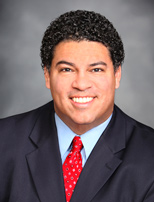Drunk Driving Becomes Campaign Issue
Issue of whether to make first-time OWI a crime is hot issue in attorney general race.
The number of first-time drunken driving convictions statewide dropped by almost 30 percent over the last five years. But an old controversy – whether Wisconsin should continue to be the only state where first-offense drunken driving is not a crime – emerged as an election-year issue last week.
Waukesha County District Attorney Brad Schimel, the only announced Republican candidate for attorney general, reopened the debate when he questioned whether a first OWI violation should be a crime. At a luncheon hosted by wispolitics.com, Schimel said that change could prompt more drunken driving fatalities. “We may see more crashes,” he added. He offered no explanation.
Schimel also cited a report that making first-offense OWI a crime would cost the criminal justice system an additional $100 million annually. A Legislative Fiscal Bureau report once estimated that additional cost at between $11 million and $108 million.
But his stand was put into a different context last week when Schimel admitted to a drunken driving violation in 1990, back when was 24 years old. That statement resonated with everyone in Wisconsin who has ever driven drunk and not been stopped.
One of two Democrats running for attorney general, Dane County District Attorney Ismael Ozanne, said first-offense OWI should be a crime. In a statement, Ozanne said: “I don’t know how, in good conscience, we cannot criminalize something as dangerous as first-time drunk driving.” He later admitted to being ticketed at age 16 for underage drinking after a traffic accident.
The other Democratic candidate for attorney general, Rep. Jon Richards, of Milwaukee, issued a statement that stopped short of calling for first-offense OWI to be a crime. Richards noted that he recently voted for bills that would require drivers charged with first-offense OWI to appear in court and would treat all second offenses as crimes, no matter when they occur. Under current law, first OWI offenses “effectively disappear” if there is no second violation within 10 years, Richards said. First OWI offenses are treated like a traffic ticket in Wisconsin.
Republican Rep. Jim Ott, who wants the Senate to act on four OWI-related bills he recently steered through the Assembly, says he does not know if a bill making a first offense a crime would pass the Assembly. “That’s a tough issue,” adds Ott, an attorney. “I think – maybe – it would pass.”
Tony Staskunas, an attorney, Milwaukee County Board member and Democratic Assembly member for 16 years who sponsored the last package of drunken driving changes that became law, says making first-offense OWI a crime would not have passed the Assembly in the 2009-10 session. But, if legislators were forced to vote on that change now, it would pass, Staskunas predicts. “Attitudes are changing,” he says. “I think the public is coming around on first-offense OWI.”
Staskunas says legislators want to avoid that vote, however. “That’s not something legislators are going to lead on,” he adds. “They are going to follow public opinion.”
Last week’s exchanges mean any candidate – for governor, for attorney general and for the Legislature — should be asked this: Do you support making first-offense OWI a crime? If not, do you support any other changes to fight drunken driving?
Two other dimensions to the issue:
*There were 16,619 first-offense OWI convictions statewide in 2012 – a five-year decrease of almost 30%, according to state Transportation Department records. The number reflects only convictions. Reasons for that drop vary, depending on who you ask.
Staskunas says all those reasons cited by the Tavern League are valid. But people also went out less, drank less and drove drunk less because of the recession, he added.
*First-offense OWI fines help finance local units of government, which get the $250 forfeiture for each offense. Let’s do the math: 16,619 first-offense OWI violations in 2012, multiplied by the $250 forfeiture for each one, equals $4.15 million. About 2,400 of those convictions were in Milwaukee County.
But local units of government also had court and personnel costs that offset some of the $4.15 million. And, not everyone convicted of first-offense OWI pays that $250.
Steven Walters is a senior producer for the nonprofit public affairs channel WisconsinEye. Email stevenscwalters@gmail.com
The State of Politics
-
How Higher Ed Institutions Are Shrinking
 Apr 1st, 2024 by Steven Walters
Apr 1st, 2024 by Steven Walters
-
How New Supreme Court Influenced Legislative Decisions
 Mar 18th, 2024 by Steven Walters
Mar 18th, 2024 by Steven Walters
-
New State Aid Favors Rural Areas
 Mar 4th, 2024 by Steven Walters
Mar 4th, 2024 by Steven Walters


















